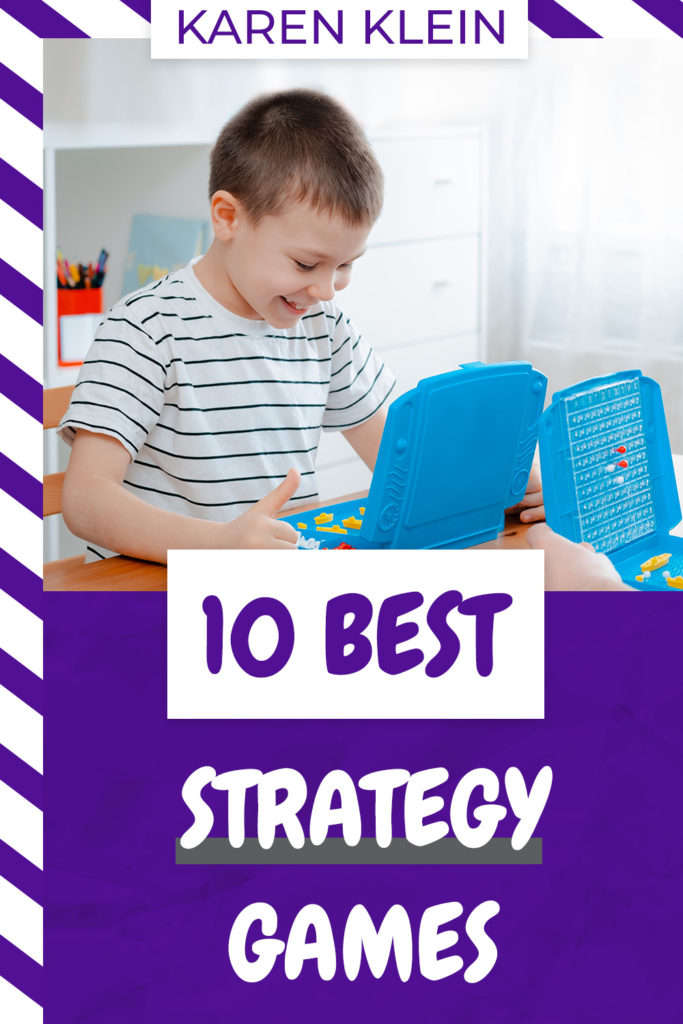
Good teaching is more a giving of right questions than a giving of right answers.
Josef Albers (was a German -born American artist and educator whose work, both in Europe and in the United States, formed the basis of modern art education programs of the twentieth century.)
Affiliate links are included to help you easily find the products I recommend. I receive a small commission from purchases made when following these links. I pride myself in only recommending products I use and honestly trust. For more info read the full disclosure.
Hello,
The other day, I found myself trying to understand why I prefer to play certain games with my children over others, and why my children enjoy them to begin with. What differentiates those favorite games from the others, and even more importantly what are my kiddos learning from them?
The common theme amongst those standout games is that they are strategy games. What makes a game a strategy game is that it can be played in different ways, giving options along the way and allowing you to ultimately choose your own faith. When playing a strategy game your child has to slow down and work smarter rather than quickly, taking many factors into account while making each decision during the course of the game.
Importance of Decision Making For Children
Good decision making skills are crucial to nurture in children as early as possible, so they can feel confident in their own choices and instincts. Developing these skills allows for children to find solutions to conflicts on their own, and in the process learn valuable life lessons.
Benefits of involving children in decision making
The greatest amount of satisfaction and fulfillment comes from a decision that your child feels proud of making. In the same breath, wrong decision making is an essential part of children’s journey towards maturity, and helps children understand the natural consequences of their surroundings .
If children are educated about the decision making process, they will gain experience and confidence in their ability to differentiate right from wrong.
It takes many years to master the art of confident decision making, as it is a complex process that can only be completed through experience. A way to foster decision making skills in your child is to give them age appropriate tasks, setting the expectation that they should make meaningful contributions to the family.
This is best shown by demonstrating responsible behavior yourself in the home and in your community. The parents themselves are the strongest source of new knowledge for children, so making sure that your own decision making skills are ready to serve as a solid and honorable example for your child is most important.
Tips to Help Children Develop Good Decision Making Skills:
(article from https://parenting.firstcry.com/)
It is important to involve children in decision making as they build their self confidence through the family’s decision making process.
1. Allow For “Natural Consequences”
During my earliest years as a mother, I remember learning at an Adler parenting class about the importance of “natural consequences”. A helpful dose of reality is often the best teacher your child could ask for. If you wish to make your child understand the consequences of a particular action or behavior, sometimes you have to let your child see unpleasant outcomes for themselves by allowing for natural consequences to occur rather than going straight to “No!” or timeouts.
For example, getting dressed before school can be a big battle in my home. So when my son didn’t want to get dressed for school last week, I allowed him to wear his pajamas to school and experience the natural consequences of arriving to school improperly dressed. Needless to say, I was glad I packed that change of clothes and he hasn’t fought me on getting dressed in the morning since.
2. Allow kids To Make Mistakes
It is important not to over protect or ensure mistakes are avoided! Mistakes are imperative to growing up, and often do more help than they do harm in those earliest years. When kids learn a hard lesson from their own mistakes, it provides them with great lasting insight.
3.Teach Your Children to Trust Themselves
Children should be taught to distinguish their strengths so they can be capable of making informed decisions throughout life. Children should be given plenty of opportunities, but they should also be able to recognize that they will not do great at everything and that failure is not something to be ashamed of. Learning to accept weaknesses and losses is essential for children.
4. Talk to Your Child
Though it can often seem daunting, it’s true that open communication is absolutely vital to parenting. If you bond with your child and make space for real and honest discussion, you are sure to get the most valuable insight on your child. Open communication enables you to anticipate your child’s decisions and better guide them in the right direction.
5. Praise your child
Parents, as a rule, must not focus solely on the ways in which their child needs to improve. Praising when your child makes good choices, shows kindness to others, or completes a project helps reinforce their desire to excel and gives them the confidence they need to later take on bigger, more involved tasks.
6. Teach Your Child How to Handle Money
We have a rule at home as far as pocket money goes (another great result from our Adler parenting course). Each child gets a sum at the beginning of the month according to their needs and age, but part of that sum is required to go to charity (we all save for a few months and then together select a family project of donation), and part goes to long term saving. For the rest, we encourage them to enjoy it NOW. (more about Kids and Money in this article)
7. Expose Your Kids To Your Own Decision Making Process
This point is extremely important – Taking the time to include your children in the decision making process shows them that their thoughts and opinions are valuable to the family unit. They will learn about the process, the questions raised, the pros and cons, and the consequences of each decision you take the time to include them in, ultimately helping them grow those vital personal decision making skills
How Do Strategy Games Help Develop the Decision Making Process?
Board games provide a structured way for children to make choices and to experience the consequences of their choices in a way that is entertaining and stimulating. Apart from entertaining children, it promotes critical thinking and decision making while deciding and negotiating to decide how they will play the game.
Here are 10 BEST strategy games, sorted by age (based on my personal experience):
For ages 5+:
For Ages 7+ / 8+:
For Ages 10+:
For Ages 14+:
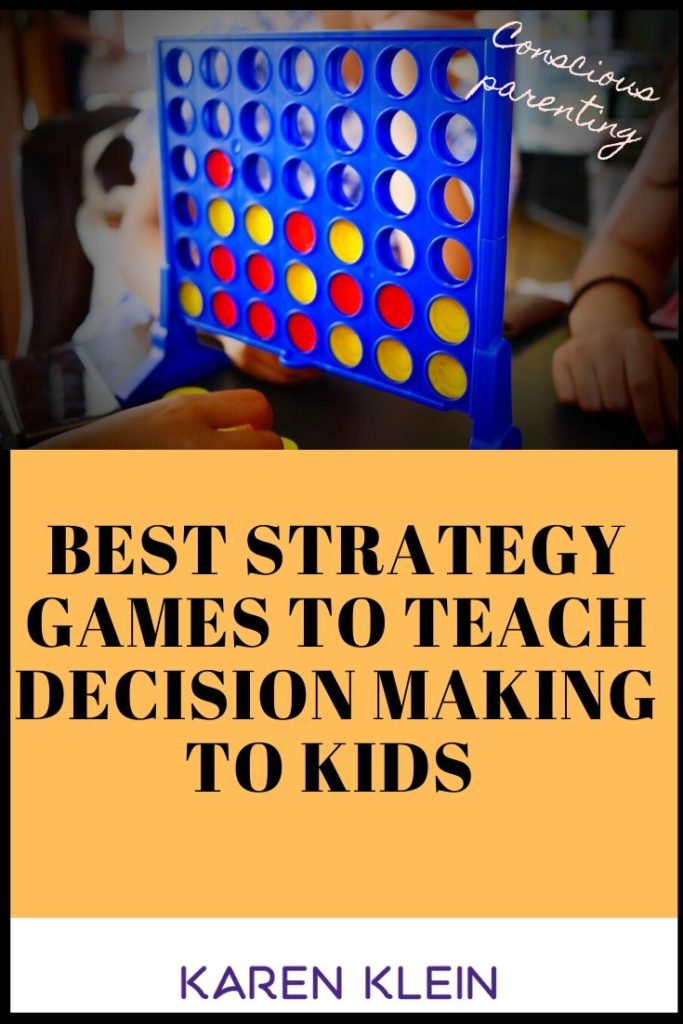

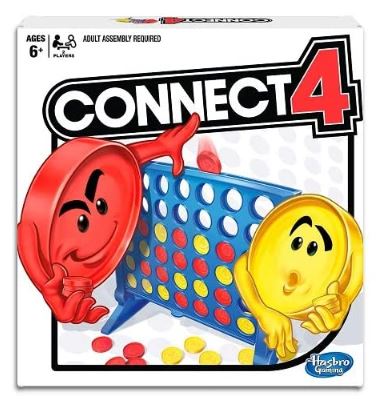
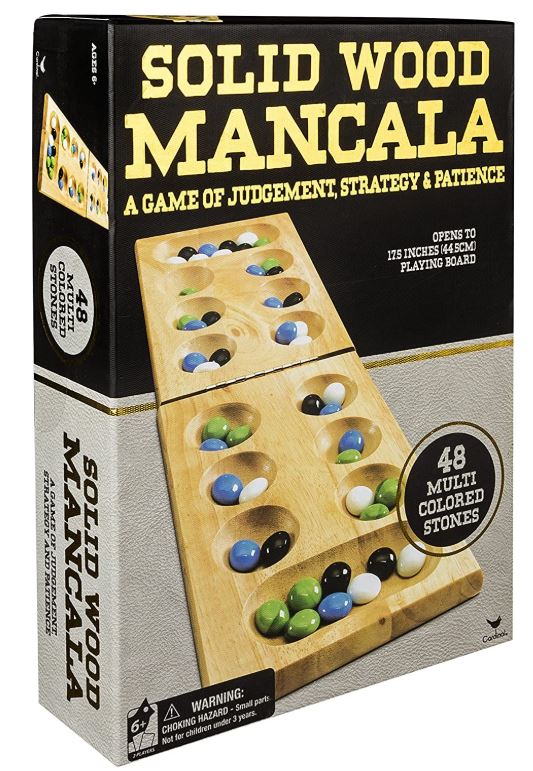

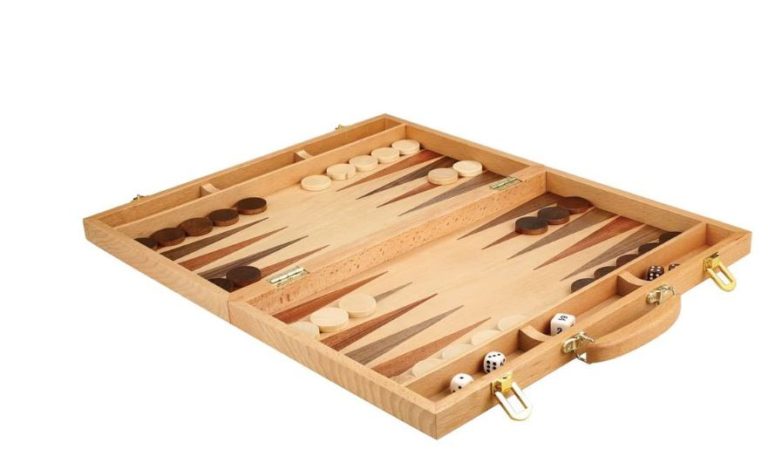
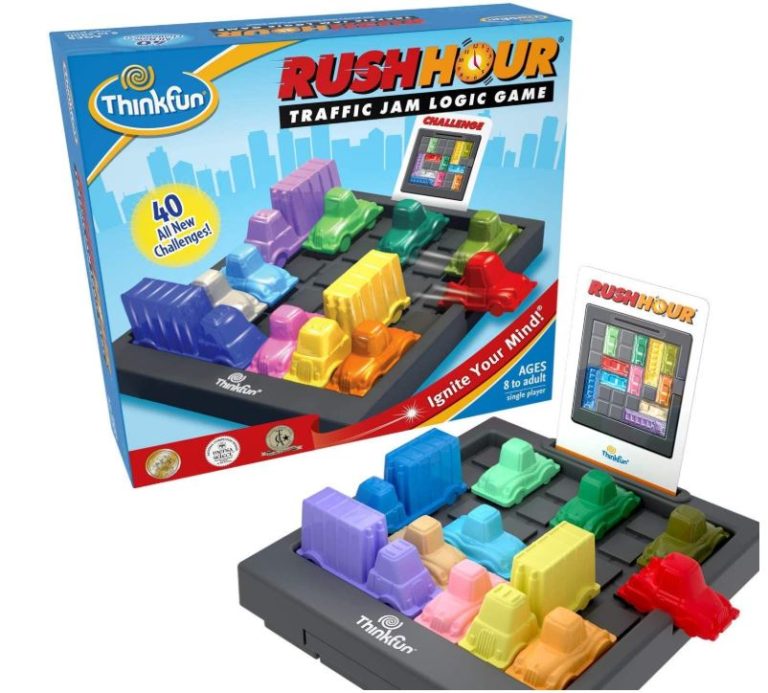


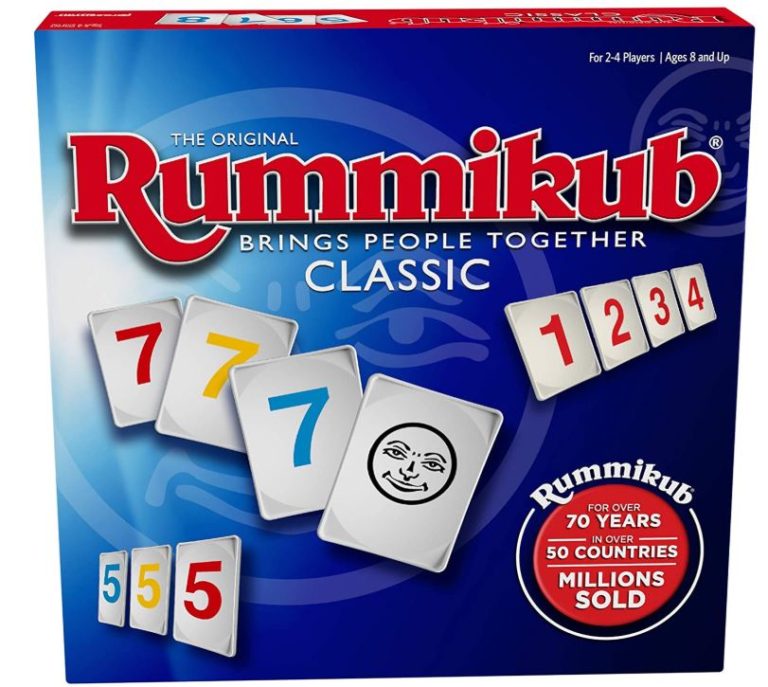
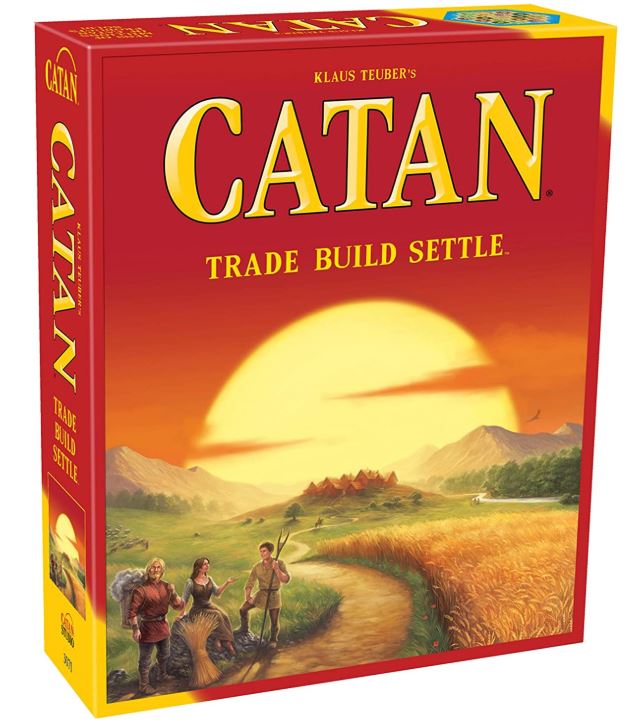




I love these games! It’s important to allow your kids to make sound decisions in both games and real life!
We love to play games with my son, but I didn’t know about many! Thanks for the fresh ideas!